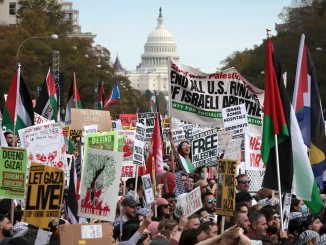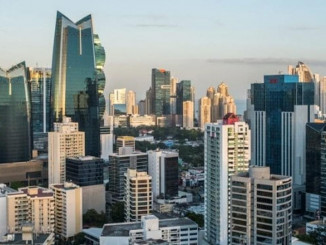
This article by Jean Liévin was translated from the original French on the website, Convergences Revolutionnaires, the site of our comrades in the organization, “L’Etincelle.”
Two salient features marked the Israeli parliamentary elections that took place earlier this month. First, the virtual disappearance from the political spectrum of the Zionist left, which now has only four seats in Parliament, the Knesset, out of a total of 120. Secondly, the strong growth of an extreme religious right, racist towards Arabs and non-Jews, homophobic and expansionist, whose leader, Itamar Ben Gvir, dreams of ridding Palestine of all Arabs and sending them to Jordan. The two phenomena are closely linked.
The Zionist left, the crucible of the Zionist state
First, it should be remembered that the Israeli left – in its labor and socialist variants – has always proclaimed its full-blown Zionism, that is, its Jewish nationalism. Even before the official proclamation of the State of Israel in 1948, it had set up, step by step, a state structure with an armed force, the Haganah, and its elite commandos, the Palmach, workers’ cooperatives, collectivist settlements (kibbutz), cooperative villages (moshav), a trade union center (the Histadrut), a social security system, cultural and sports organizations, etc. Moreover, it controlled all the public services, including the police and the army. In addition, it controlled most of the Jewish municipalities. In the 1950s and 1960s, this prompted a section of the European and North American left to speak of “Israeli socialism”. And when the Zionist state was born, the Labor Party naturally found itself in the key positions of power, from the leaders of the government (Ben Gourion, Golda Meir) to those of the army (Moshe Dayan, Itzhak Rabin), via the police, the judiciary, and even regularly the presidency of the state (Ben-Zvi, Shazar, Herzog), etc.
But from the beginning, there was a worm in the fruit. By claiming to be Zionist, this Left more or less designated the Arab population as its adversary, supposedly occupying the land of its ancestors. And many kibbutzes and moshavs were erected on land that the Palestinian fellahs had been driven from. Similarly, it took a long struggle to get Palestinian workers accepted into the Histadrut, which was originally reserved for Jewish workers only and which prohibited Jewish-run companies from employing Arab workers.
This is the same Zionist left that was in charge of the country during the various Arab-Israeli wars and the occupation of the West Bank, Gaza and East Jerusalem in 1967. And there again, it continued the same nationalist and expansionist policy, always in the name of preserving “the Land of Israel”. Just as it covered up all the abuses of the army, which it presented as “the most moral” in the world, and accused those on its left who criticized this colonialist policy of “anti-Semitism” and “Holocaust denial”.
The turn of the 1970s
But little by little, a bourgeoisie developed in the country that found the tutelage of the Labor Party, which had given it a foothold, more and more burdensome. It did not hide its admiration for the ultra-liberal economic policies of Reagan and Thatcher. After some trial and error, it embraced the ideology of “revisionist Zionism,” a trend that flirted with Mussolini and Franco’s Spanish-style dictatorial regimes before World War II, emphasized its taste for terrorist actions against the Arab population, and its visceral opposition to all those who even remotely claimed to be leftist and socialist. It opposed all economic statism and considered the left too soft on the Palestinians. It found a sympathetic ear among some Eastern Jews, i.e. those from the Middle East and North Africa, who were generally very conservative and felt that they were being short-changed by the Labor “elites”, usually from Europe, who occupied its upper echelons. It was mainly on this basis that the Likud was founded, a party led first by Menachem Begin and later by Benyamin Netanyahu, the very type of businessman politician involved in a number of financial scandals. Begin, whose party won the elections, was Prime Minister from June 1977 to October 1983. He was the one who signed the peace agreement with Egyptian President Anwar Sadat in 1978.
An alternation that leaned further and further to the right
From then on, the Zionist left and right alternated in government. Labor’s last major success was in 1992, when it won more than 44% of the vote with the small socialist party Meretz. This victory that wasn’t to survive the assassination of Prime Minister Yitzhak Rabin in 1995 by a Jewish extremist who was unhappy with the Oslo Accords signed with the Palestinian Authority.
Since then, the right and the far right have grown stronger. Even the last Israeli government, that of Yair Lapid, described by observers as “centrist,” had a large number of right-wing groups in its ranks, some of them close to the settlers. Formed under the banner of “Anyone but Netanyahu”, this government continued a ferocious repression against the Palestinians, evacuated entire villages to make way for Jewish settlers or the army, and increased targeted assassinations. Now he has been replaced by a bunch of crooked politicians, religious fanatics and Jewish fascists who want to go even further down this road and claim they can do better than him.
The end of the “two state solution”?
Many commentators have lamented that the outcome of these elections effectively means the end of the concept of “two states”, one Jewish and one Arab, living side by side in harmony. But this concept has above all served the various Israeli governments, both left and right, to gain time and postpone negotiations endlessly, while shamelessly continuing the colonization and expropriations. It has also been used as a cover-up by the “friends of Israel” in the European Union and the United States to never clearly condemn the Israeli occupation under the pretext of preserving the future of hypothetical negotiations.
Building a revolutionary and internationalist left
Today the Israeli left hardly exists. Most of the sincerely pacifist and anti-occupation activists have deserted the political sphere to remain active in non-governmental organizations that provide aid and support to the Palestinians, NGOs that have sometimes been the nemesis of the authorities.
However, one day or another, a new left must be built, profoundly anti-racist, internationalist and revolutionary, not only opposed to the occupation and the second-class status to which Israeli Arabs are confined, but also fully supporting the right of Palestinians to self-determination and the right of return of refugees driven from their lands during the various conflicts.




